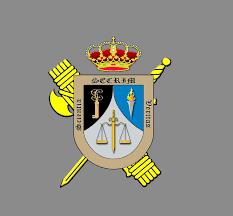Around Spain
POSSIBLE ELECTORAL FRAUD IN ORIHUELA COSTA
The Orihuela Costa based Claro political group has issued a statement alleging possible electoral fraud.
“Voting shambles”…. “a tactical ploy which probably worked”. These were the heading and conclusions of a letter to the Editor of a prominent, local English language newspaper. They sum up exactly what C.L.A.R.O. thinks about the organisation of the municipal elections in Orihuela Costa on 24 May.
There was confusion in the description of the voting centres on the Voting Cards (tarjetas censales) informing registered voters where they should vote. The Playa Flamenca Town Hall (Ayuntamiento) and the Reading Point in Lomas de Cabo Roig were described respectively as Oficina Municipal Playa Flamenca and Centro Municipal Orihuela Costa. If the Town Hall had been called Ayuntamiento this would have helped avoid confusion but nobody knows the Oficina Municipal Orihuela Costa and it would not have helped much by calling it Reading Point, as this is also little known. The basic mistake is to use as one of the three polling stations in Orihuela Costa a little known unobtrusive building six kilometres from the main population centre of Orihuela Costa
More confusing, however, were the boundaries drawn for the polling stations. These had changed radically since the local elections in 2011. Those living in the centre of Orihuela Costa, essentially Playa Flamenca and La Florida, who previously voted in the Town Hall or Civic Centre were obliged in 2015 to vote in different centres. The polling station for those living in La Florida became the Civic Centre further away than the Town Hall and the polling station of those living in Playa Flamenca became the little known, poorly sign posted Reading Point in Lomas de Cabo Roig, 6 kilometres from where they live. These changes were already introduced for the European Parliament elections in 2014 and there were many criticisms. Despite this, the Town Hall maintained the arrangements which they are responsible for notifying to the Electoral Authorities (Censo Electoral). The result was confusion and inconvenience on a large scale, especially for the hundreds of people who, in order to vote, were supposed to travel some 6 kilometres from where they live and where they had voted in the past.
Why all this unnecessary hassle when other public buildings in the central Playa Flamenca area (such as the schools at the top of the market street, Nicolas de Bussy) could have been used? In a democracy, it is the responsibility of the local government to facilitate the vote of its residents not to obstruct it.
Hundreds of complaints were made by voters to those from various political parties on official polling station duties (apoderados and interventores) in the Playa Flamenca office of the Town Hall and the Civic Centre, especially by those supposed to vote in the Reading Point. For those with cars, the prospect of driving 6 kilometres to a location they did not know and were not confident would be sufficiently well signposted to find, was sufficient to persuade many not to try. For those without cars or users of mobility vehicles it was out of the question, although several people were driven to the Reading Point by volunteers helping at the polling stations.
Could these consequences for the vote on 24 May have occurred to the politicians in the Socialist-led government who decided on these boundaries? The Socialist Party was known not to be interested in its vote on the coast. It received only 277 votes, its worst result ever In the letter to the Editor the answer to the question was provided – “a tactic which probably worked” – in other words, “gerrymandering”.
The politicians and officials in the Orihuela Town Hall openly hide behind a discriminatory Spanish law which excludes non-Spanish voters from the calculation to determine the number of polling stations which must be provided. This law is particularly discriminatory in Orihuela Costa where nearly 60% of the voters are non-Spanish. The law does not prevent the local government from increasing the minimum number of polling stations, as C.L.AR.O. confirmed when we were successful in having the electoral authorities increase the number of tables in the polling stations in Orihuela Costa. We were unfortunately too late to try to have the number of polling stations increased.
C.L.A.R.O. is determined to challenge what may have been electoral fraud. We will do so not because the confusion and obstacles to voting almost certainly cost the coast a directly elected C.L.A.R.O. councillor (we were only 50 votes short of success). It is too late to change that. But there will be a next time and we cannot allow the legal, democratic rights of those living in Orihuela Costa to be abused. If Orihuela Costa’s political voice is not heard, the quality of life will suffer.
C.L.A.R.O. will petition the European Parliament to denounce the discriminatory law which excludes the number of non-Spanish voters from the calculation of the number of polling stations which must legally be provided. This has been the pretext which the Orihuela Town Hall has sheltered behind in limiting the number of polling stations in Orihuela Costa to three. We will also challenge the way in which the boundaries were drawn, causing confusion and obliging unreasonable distances to be travelled to exercise the right to vote.
WE INVITE ALL THOSE CONCERNED AND AFFECTED BY THE INFRINGEMENT OF THEIR DEMOCRATIC RIGHTS TO SIGN THE PETITION WE WILL PREPARE. PLEASE CONTACT C.L.A.R.O. on clarospain@gmail.com IF YOU ARE WILLING TO BE A SIGNATORY. ALTERNATIVELY, leave your name and contact details in the C.L.A.R.O. mail box in the Asturias Restaurant or come in person to one of our weekly, open Friday meetings at the Asturias Restaurant starting at 5 p.m.
A Petition to the European Parliament will inevitably take time before it can succeed. This was our experience in C.L.A.R.O.’s 2007 Petition when voting application forms were not delivered by post to non-Spanish residents living in Orihuela Costa because the government had not provided the coast with official street names and house numbers. We were eventually successful, thanks to which we have the basis of an operative postal service – only to be challenged later in other ways!
However, we are conscious that Spanish voters in Orihuela Costa could soon be affected again by the unfair geographic provision of polling stations. National elections are due before the end of the year. As a local party, C.L.A.R.O.’s legal remit does not extend to national issues. However, Spanish C.L.A.R.O. members will appeal to the Electoral Authorities to ensure that in the coming national elections, Spanish residents of Orihuela Costa exercise their vote fairly and democratically and to oblige the Orihuela local government to remove obstacles to their doing so.
-

 Driving in Spain2 weeks ago
Driving in Spain2 weeks agoHow Long Does it take to Receive a Traffic Fine Through the Post?
-

 News2 weeks ago
News2 weeks agoYour Task for This Week is to Seek Out a Monument – The Week Ahead
-

 Health1 week ago
Health1 week agoQuirónsalud Elche and Quirónsalud Gran Alacant strengthen their services with the incorporation of a new team specialised in advanced ophthalmology
-

 Court News1 week ago
Court News1 week agoMan in court accused of trying to kill ex-partner with an axe




















